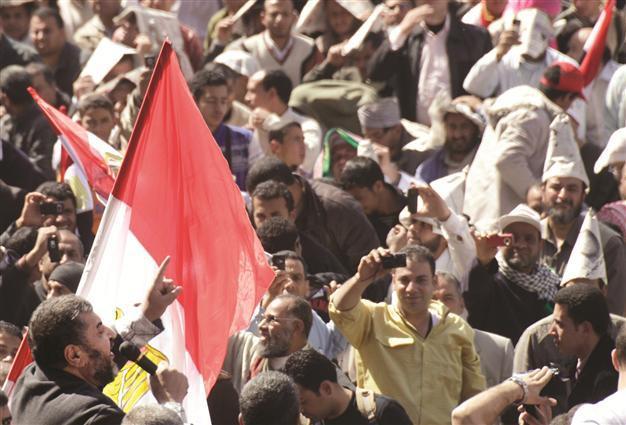Brotherhood eyes presidency
CAIRO

Egypt’s Muslim Brotherhood says it decided to field the movement’s deputy leader and top strategist as its presidential candidate, el-Shater (L), fuelling the fears of liberals and deepening the crisis with the army. AP photo
The Muslim Brotherhood named its chief strategist and financier as a candidate for president on March 31 in a surprising reversal of earlier pledges to stay out of the race, setting the group on a collision course with Egypt’s military rulers.The brotherhood already controls about half of the seats in Parliament and had been concerned that contesting the presidency would bring a backlash from liberals and Western countries fearful of an Islamist takeover. But in a dramatic shift that amounted to a political bombshell in Egypt, the brotherhood nominated deputy leader Khayrat el-Shater. The multimillionaire businessman, 61, has played a key role in guiding the group through the tumultuous transition since the ouster of Hosni Mubarak.
Because of the brotherhood’s success in the parliamentary vote and the reach of its grassroots political organization, the candidate it nominates or backs will be considered the frontrunner in the race for the May 23-24 vote. And if el-Shater wins, the brotherhood would completely dominate the political arena and could push for changes such as stricter adherence to Islamic law. A Muslim Brotherhood government could also result in rockier relations with Israel and the United States.
‘No desire of monopoly’
The decision will likely antagonize the ruling generals, who are worried about shielding their significant business interests and other privileges from civilian oversight and are wary of too much power concentrated in the hands of a single group. “We don’t want to reach a confrontation that affects the path of the nation and we do not have the desire to monopolize power,” Mohammed Morsi, the top leader of the brotherhood’s political arm, the Freedom and Justice Party (FJP), was quoted as saying by Reuters.
The FJP has been pressuring the military to sack the Cabinet – which it accuses of stalling the revolution – and to appoint an FJP-led government. Mahmoud Hussein, the group’s deputy leader, said the decision to run a candidate was made in the face of “attempts to abort the revolution.” The decision will also widen the gap with liberals and secularists, who fear that the brotherhood will implement a hard-line Islamist agenda once it has solidified its political position.
El-Shater joined the brotherhood in 1974. He has been jailed four times for a total of seven years on charges relating to his membership in the group, which was outlawed more than 50 years ago, the Associated Press reported.
He is seen as the group’s iron man, the one who steers talks with the military council, which orchestrates parliamentary elections and negotiates with Arab Gulf countries and the International Monetary Fund over loans.
















